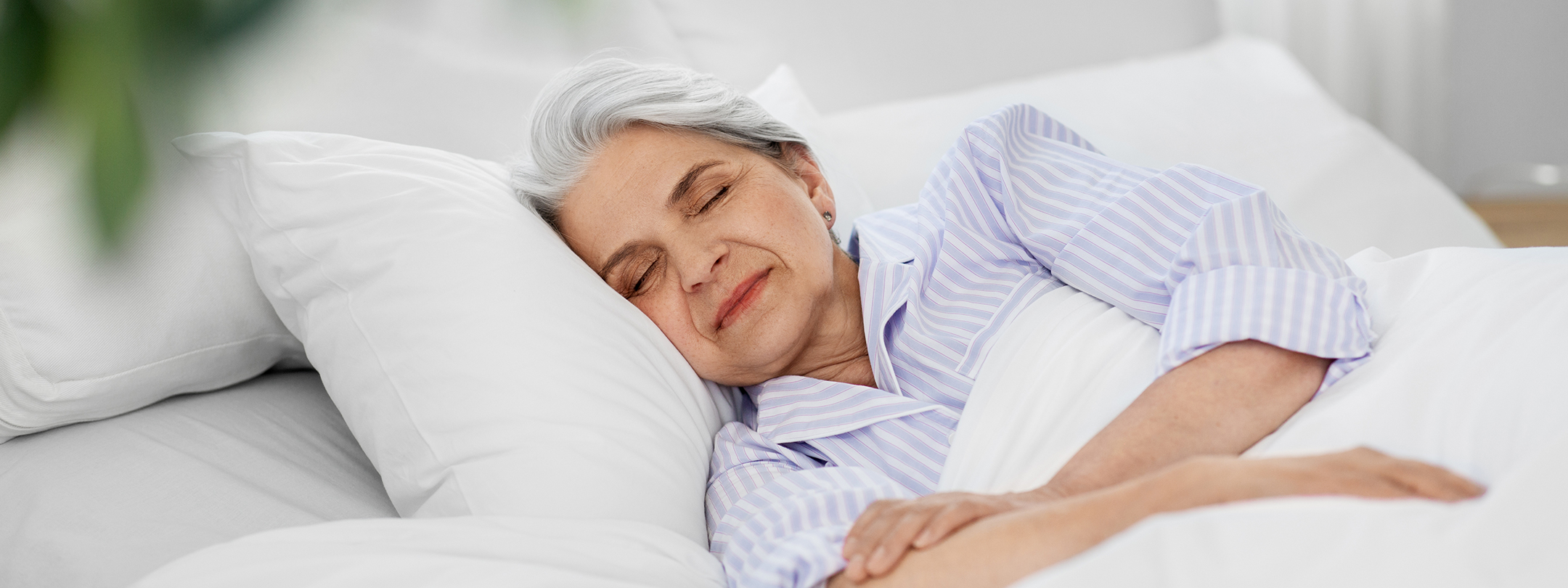Everyone goes to bed and wakes up at different times, but we all need quality sleep. So, what does sleep do for us and why do we need so much? Sleep plays an important part in maintaining or improving:
- Metabolism and weight
- Memory and learning
- Mental health
- Physical health
- Mood
- Cardiovascular health
- Immune function
Depending on your age, sleep does different things for our bodies and minds. Here’s how sleep helps us in every stage of life:
BABIES AND CHILDREN
Children and babies need a lot more sleep than adults. Newborns spend 16-20 hours a day sleeping. By age 2, children are finally spending more time awake than sleeping. Sleep is vital to children and babies because of the rapid brain development and growth that they’re experiencing during this age.
Children spend a lot of time in Non-Rapid Eye Movement (NREM)—the deep sleep in which the body restores itself. The body releases important hormones for growth and development during this deep state. And during NREM, blood supply to the muscles increases and tissue growth and repair occurs.
TEENAGERS
Teenagers seem to have the most complicated relationship with sleep. They should get about 8½ hours sleep a night, but because of the emotional changes they experience and an increase in social and school obligations, only about 15% of teens get the sleep they need. Hormonal shifts during teenage years can cause changes with their internal clocks, so teens frequently don’t get tired until late at night. Because of this, most teenagers stay up late and wake up late (especially on weekends). Teenagers are still growing and developing mentally and physically, so sleep is still vital for healthy growth and development.
ADULTS
Adults typically need 7 to 9 hours of sleep per night. So, why is it that roughly 1/3 of American adults aren’t getting enough? The average American gets 6.8 hours of sleep a night, which is 3 hours less than the average in 1910. It seems the further society progresses, the less sleep we get—this could be a result of the rise of televisions, computers, and mobile devices that can distract from going to bed on time.
Many adults experience physical changes such as pregnancy, hormone fluctuations, or mental stresses that may interrupt consistent sleep. And because most adults experience high amounts of stress, sleep is especially important to maintain good overall health. The amount of sleep adults get widely varies from person to person. That’s because most adults determine how much sleep they need based on what amount leaves them feeling refreshed and alert during the day.
SENIORS
Like teenagers, seniors experience a shift in their internal clock that can make it harder for them to sleep. Couple those changes in sleep patterns with the increased incidence of medical problems and prescription medications—many of which can greatly affect sleep—and you’ll understand the biggest contributors to sleep problems in seniors.
But it’s a misconception that seniors need less sleep—the need for sleep remains constant through adulthood. Seniors need 7 to 8 hours of sleep to help their bodies function properly, fight off illness, improve concentration and quality of life, and reduce the risk of accidents.
Set a goal to go to bed an hour or two early every night and see how the increased amount of sleep positively changes your mental and physical health. You may be surprised at the difference in how you feel.
For information on our medical and dental plans, visit selecthealth.org/plans.
Related Articles

